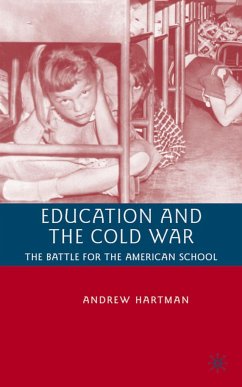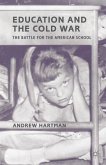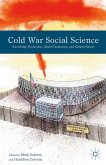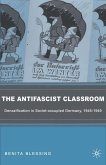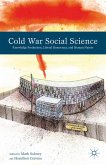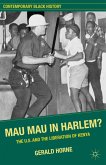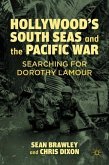Shortly after the Russians launched Sputnik in 1957, Hannah Arendt quipped that "only in America could a crisis in education actually become a factor in politics." The Cold War battle for the American school - dramatized but not initiated by Sputnik - proved Arendt correct. The schools served as a battleground in the ideological conflicts of the 1950s. Beginning with the genealogy of progressive education, and ending with the formation of New Left and New Right thought, Education and the Cold War offers a fresh perspective on the postwar transformation in U.S. political culture by way of an examination of the educational history of that era.
"Hartman depicts Cold War educational debates both as inheritors of longer precedents and as politically distinct to the era. He convincingly depicts this story as a political struggle for control of American schools, a conflict that he says radical and working-class constituents lost. At the same time, because this book is primarily an intellectual history, Hartman justifiably eschews tempting claims about what American schools, still largely decentralized, were actually doing. His stimulating exploration of the political and intellectual debates about American education thus invites new social histories that examine how teachers, students, and parents experienced and negotiated national Cold War imperatives in local schools. Hartman's book cautions us not to underestimate its power and permanence in American education." - American Historical Review
"A particular strength of this book is Hartman's examination of progressive education and the intellectual abuse by conservatives. For readers wishing to examine the crisis in education as America moved into the Cold War, this well-organized synthesis provides an excellent point of departure." - Ronald Lora, University of Toledo, USA
"The work offers a rich blend of documentary evidence and philosophical reflection." - Samuel Day Fassbinder
"In contemporary American culture, 'the conservative 1950s' have become something of a cliché. Hartman's smart book gives new historical substance to theterm, showing us how - and why - our schools turned Right during the Cold War. Even better, he makes us question whether the schools ever really turned back. The 'conservative 1950s' might still be with us, in more ways than we are willing to admit." - Jonathan Zimmerman, Professor of Education and History, New York University, USA
"Anyone who wants to fully understand the failure of American schools to prepare free citizens capable of vigorous participation in a democratic society will find here a complex but accessible map. Andrew Hartman is a wise and sensible guide through the thickets of historical flow, economic structure, political condition and cultural context. An encounter with Education and the Cold War is fortification for the important struggles ahead." - William Ayers, University of Illinois at Chicago, USA; author of Teaching Toward Freedom
"Hartman's study makes a significant contribution to the political, intellectual, and educational developments associated with the riseand fall of progressive education. It will appeal to a wide variety of readers, including upper-level undergraduates, graduate students, and scholars of education." - History of Education Quarterly
"He does well to remind educators of the baleful consequences of failing to explore the deeper metaphysical grounds and broader political implications of their pedagogy." - Modern Intellectual History
"Education and the Cold War is a rigorous, readable bookthat offers the first comprehensive analysis of schooling during one of the most important eras of American history, a necessary reference for anyone interested in educational thought or politics during the twentieth century." - History of Education
"A particular strength of this book is Hartman's examination of progressive education and the intellectual abuse by conservatives. For readers wishing to examine the crisis in education as America moved into the Cold War, this well-organized synthesis provides an excellent point of departure." - Ronald Lora, University of Toledo, USA
"The work offers a rich blend of documentary evidence and philosophical reflection." - Samuel Day Fassbinder
"In contemporary American culture, 'the conservative 1950s' have become something of a cliché. Hartman's smart book gives new historical substance to theterm, showing us how - and why - our schools turned Right during the Cold War. Even better, he makes us question whether the schools ever really turned back. The 'conservative 1950s' might still be with us, in more ways than we are willing to admit." - Jonathan Zimmerman, Professor of Education and History, New York University, USA
"Anyone who wants to fully understand the failure of American schools to prepare free citizens capable of vigorous participation in a democratic society will find here a complex but accessible map. Andrew Hartman is a wise and sensible guide through the thickets of historical flow, economic structure, political condition and cultural context. An encounter with Education and the Cold War is fortification for the important struggles ahead." - William Ayers, University of Illinois at Chicago, USA; author of Teaching Toward Freedom
"Hartman's study makes a significant contribution to the political, intellectual, and educational developments associated with the riseand fall of progressive education. It will appeal to a wide variety of readers, including upper-level undergraduates, graduate students, and scholars of education." - History of Education Quarterly
"He does well to remind educators of the baleful consequences of failing to explore the deeper metaphysical grounds and broader political implications of their pedagogy." - Modern Intellectual History
"Education and the Cold War is a rigorous, readable bookthat offers the first comprehensive analysis of schooling during one of the most important eras of American history, a necessary reference for anyone interested in educational thought or politics during the twentieth century." - History of Education

